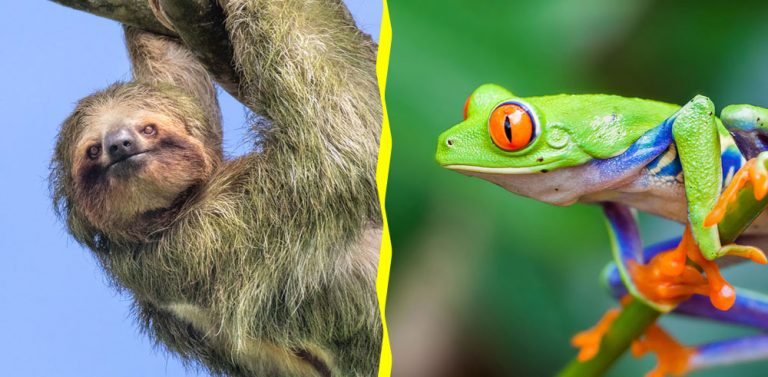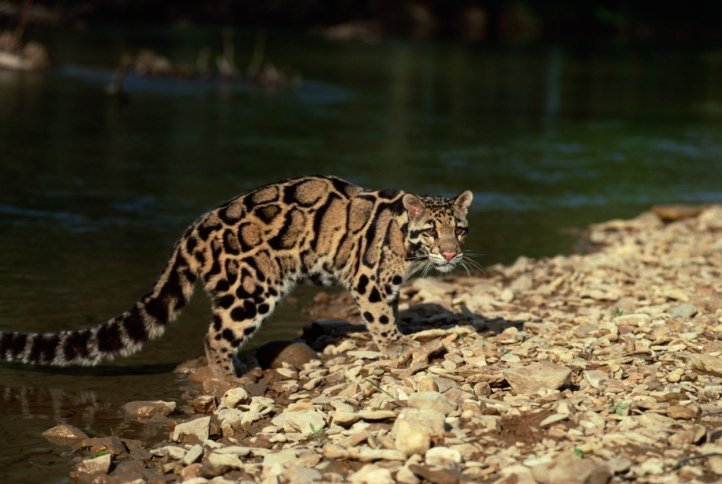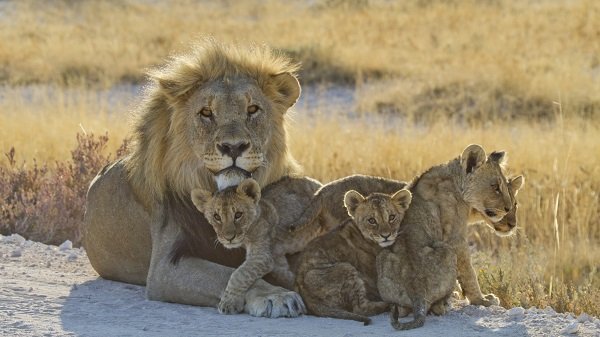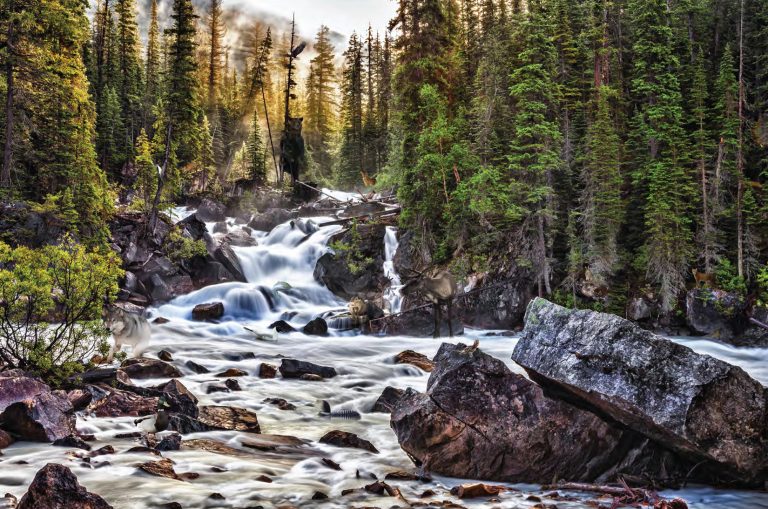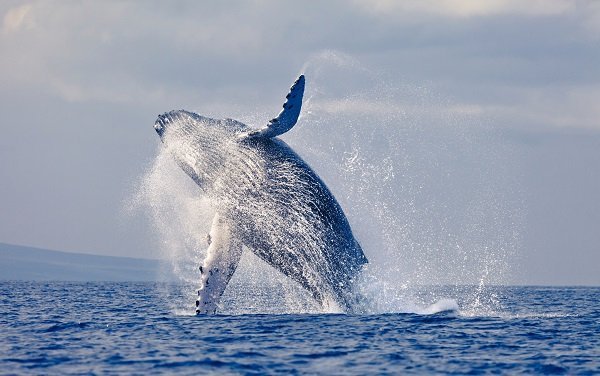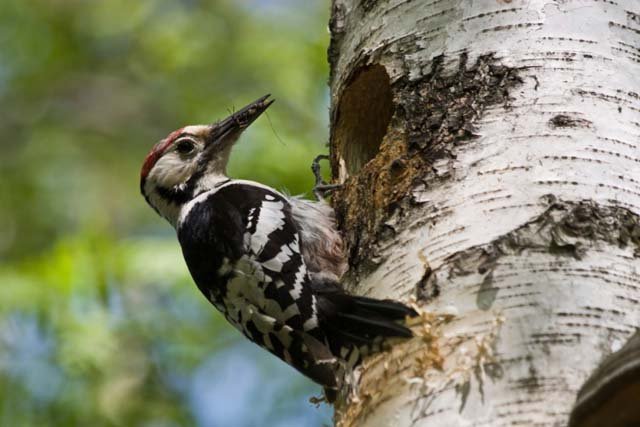
Top Ten BIGGEST Cats
From tigers to cougars, to fluffy your neighbour’s pet, cats come in all different sizes. But which cat holds the title for being the BIGGEST? Find out in this top ten list!
Since measuring the mass of the largest recorded animal in each species of cat can be kinda confusing we’ve measured them out in pounds, kilograms and bowling balls. For the bowling balls we’ve used a standard 16 pound ball, the heaviest one in a regulation game, that way the next time you run into the largest cheetah you’ll know it weighs around 7.4 bowling balls!
10. Caracal (Caracal caracal)

How big are we: 19kg, 42 pounds or 2.6 bowling balls
Where we live: Africa, Central Asia and Southwestern Asia
http://animaldiversity.ummz.umich.edu/site/accounts/information/Caracal_caracal.html
9. Clouded Leopard (Neofelis nebulosa)

How big are we: 23kg, 51 pounds or 3.2 bowling balls
Where we live: South of the Himalayas around Nepal, Bhutan and some areas of Northeastern India
http://animaldiversity.ummz.umich.edu/site/accounts/information/Neofelis_nebulosa.html
8. Eurasian Lynx (Lynx lynx)

How big are we: 36kg, 79 pounds or 4.9 bowling balls
Where we live: From Western Europe to Russia to Tibet and Central Asia
http://animaldiversity.ummz.umich.edu/site/accounts/information/Lynx_lynx.html
7. Cheetah (Acinonyx jubatus)

How big are we: 54 kg, 119 pounds or 7.4 bowling balls
Where we live: Sub-Saharan Africa and Northern Iran
http://animaldiversity.ummz.umich.edu/site/accounts/information/Acinonyx_jubatus.html
6. Leopard (Panthera pardus)

How big are we: 65kg, 143 pounds or 8.9 bowling balls
Where we live: Africa and Asia
http://animaldiversity.ummz.umich.edu/site/accounts/information/Panthera_pardus.html
5. Snow Leopard (Uncia uncia)

How big are we: 75kg, 165 pounds or 10.3 bowling balls
Where we live: Central Asia to Northwestern China and Tibet
http://animaldiversity.ummz.umich.edu/site/accounts/information/Uncia_uncia.html
4. Cougar (Aka Puma and Mountain Lion) (Puma concolor)

How big are we: 120kg, 264 pounds or 16.5 bowling balls
Where we live: From Southern Argentina and Chile to Southeastern Alaska
http://animaldiversity.ummz.umich.edu/site/accounts/information/Puma_concolor.html
3. Jaguar (Panthera onca)

How big are we: 136kg, 299 pounds or 18.7 bowling balls
Where we live: Southern Arizona and New Mexico to Northern Argentina and Northeastern Brazil.
http://animaldiversity.ummz.umich.edu/site/accounts/information/Panthera_onca.html
2. Lion (Panthera leo)

How big are we: 272 kg, 598 pounds or 37.4 bowling balls
Where we live: Sub-Saharan Africa expect in desert and rainforests
http://animaldiversity.ummz.umich.edu/site/accounts/information/Panthera_leo.html
1. Siberian Tiger (Panthera tigris)

How big are we: 423kg, 931 pounds or 58.2 bowling balls
Where we live: Northeastern China, Korea, Russia, parts of India and around the Himalayas
http://animaldiversity.ummz.umich.edu/site/accounts/information/Panthera_tigris.html
Check out the Top Ten BIGGEST Wild Dogs!
If you think animals are amazing, the Earth Rangers Podcast is for you!
Join Earth Ranger Emma as she travels the world on a quest to solve some of nature’s greatest mysteries! With top ten countdowns, animal guessing games and epic animal showdowns, this is a journey you won’t want to miss!
When Animals Find the Hidden Camera
Have you ever wondered what animals think when they’re being filmed? What about when they find a hidden camera? Check out the hilarious video below, and tell us what you think in the comments!
Don’t forget that by commenting on this article, you’ll be one step closer to levelling up! Check your progress on your Journey Map, and remember, you only need 5 comments to reach Level 3 and 15 to reach Level 5. Share your thoughts here – we’d LOVE to hear them!
All comments are moderated before posting, so your comment won’t be visible until we’ve had a chance to check that it’s squeaky clean.
I Spy Animals
I spy with my little eye 15 animals hidden in this picture. Can you find them all? Click on the image to see it at a large size.
Tell us which ones you found, but don’t say where you found them so other people can play too.
Click here for the answer!
Pixel Puzzler #9: The Great Reveal
We’ve gotten tons of great guesses on Part 1 of the Pixel Puzzler, and now it’s time for the answer. Are you ready for the great reveal? Find out if you got it right!
The answer to this Pixel Puzzler is (drum roll please) a turtle! How did you do? Tell us in the comments!

Caption This: What’s this Burrowing Owl Thinking?
We need your help! This burrowing owl has something on it’s mind but we can’t figure it out! Take a look at the picture below and see if you can come up with the best caption!
Post your ideas in the comment section below.

Looking for more fun stuff? Check out our other captions, try and figure out a pixel puzzler, take a quiz or watch a cool video!
Eco-Activity: Explore the Wild Wire Blog!

Did you know that giraffes sleep for just 30 minutes a day, or that the giant armadillo has more teeth then any other land mammal? You’ll never guess where we got these facts: on the Earth Rangers Wild Wire blog, of course! For today’s Eco-Activity, we want you to explore the Wild Wire blog and make 5 comments!
You can…
- Check out the coolest album covers from your favourite animal bands,
- Try to guess which animal is hidden in the latest Pixel Puzzler,
- Take a quiz and find out which jumping animal you’re most like,
- Submit your best caption with a “Caption This”, or
- Let us know which Eco-Activity is your favourite.
Whatever you comment on is up to you! Just be sure you do it before the end of the month so you can earn DOUBLE the points for each comment you make!
To find the Wild Wire blog, all you need to do is tap the book icon on the left side of the App, then you’re ready to start exploring. Don’t have the Earth Rangers App yet? Download it for free in the App store. We can’t wait to find out what you think this owl is thinking!
Top Ten Things You Didn’t Know About Whales
Find out how to tell the age of a blue whale, which whale has the nicest smile and who is the best at deep dives in this top ten countdown!
1) The wax plug found in a blue whale’s ear is made up of layers that can be counted to estimate the animal’s age.

2) Whales don’t get the water they need from seawater; instead they get water by metabolizing the fat in their food.

3) Whales swim by moving their tails up and down, unlike fish, which swim by moving their tail side to side.

4) The blue whale is the largest animal to ever live on Earth; their heart is about the size of a Volkswagen beetle.

5) Sperm whales spend about 7% of their time drifting inactively; they sometimes take these naps while standing up vertically.

6) Blue whales are one of the loudest animals, producing sounds that other whales can hear 1,000 miles (1,600 kilometers) away.

7) Hippos are the closest living relative to whales.

8) The beluga whale is the only member of the cetacean order that can make facial expressions.

9) Some whales migrate to ‘rubbing beaches’ which are shallow bays lined with rocks that they rub against, likely to help them shed their skin.

10) Cuvier beaked whales hold the record for the mammal with the longest and deepest dive. Scientists have tracked a Cuvier beak whale diving down 9,816 feet (2,992 meters) and staying under water for 138 minutes.

Which of these whale facts do you think is the coolest?
Industrial Strength Woodpecker
Most woodpeckers can tap their bills 25 times per second to drill holes in trees. These kinds of blows would leave most people dizzy and off balance, but these birds have skulls that absorb the impacts and stiff tail feathers that brace them on trees.


